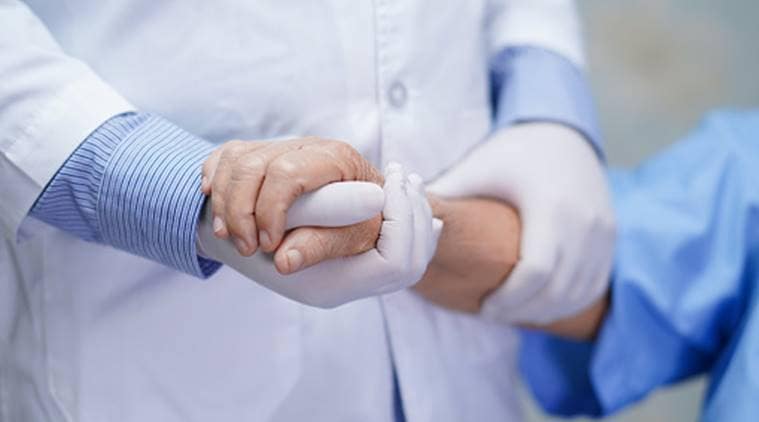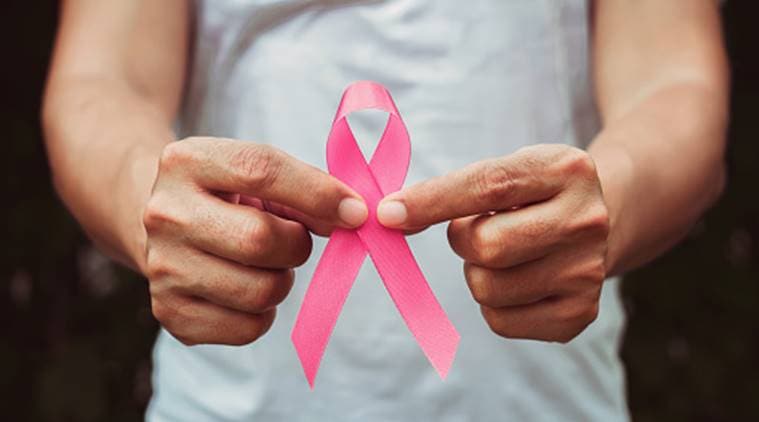Patients with renal disease already have a compromised immunity, making them more prone to infection.

There are over 1,30,000 patients receiving dialysis in India, reported a 2019 study published in the Indian Journal of Public Health, and the number is increasing by about 232 per million population. With many dialysis centres in the country being shut down as a result of the coronavirus crisis, and difficulties in commute in the lockdown, many of these patients are now facing life-risking challenges.
Dialysis–a process of purifying blood when kidneys do not function properly–is a life-sustaining procedure for patients with renal disease. In the current situation, however, the process can be risky. The required equipment for the process need to be sanitised well before use to prevent transmission of the virus from one patient (in case asymptomatic) to another. Patients with renal disease already have a compromised immunity, making them more prone to infections.

Some hospitals have been transformed into COVID treatment centres while some other dialysis units have shut down in the wake of the risks, or they have restricted the number of patients they handle. “Most dialysis units are now doing it twice a week for most patients, in an attempt to decrease the overall burden on their units,” Dr Rushi Deshpande, director, nephrology academic, Jaslok Hospital and Research Centre, New Delhi, told indianexpress.com.
There has been a significant shortage of technicians who are unable to travel to work owing to the lockdown, which has further impacted the frequency of the process, he added. Others are being referred to alternative dialysis centres, many of which, however, are hesitant about attending to new patients for fear of them being infected, Samiir Halady, coordinator, Amar Gandhi Foundation, formed by a group of nephrologists in Mumbai, said.
Read | Coronavirus: People with thalassemia face “blood shortage”, appeal for blood donations
According to the Health Ministry guidelines, patients coming for dialysis need to be screened for COVID-19 before starting the process. The worry here is that dialysis ideally needs to be done thrice a week but it gets delayed as patients await their test reports for COVID-19, which may take up to a couple of days to come. “I know of a patient who was asked to get a coronavirus test done before dialysis. She was, however, refused by some private hospitals who had their appointments prebooked for a week. But you cannot delay dialysis or it can affect your health badly. You also need emergency dialysis sometimes. Thankfully, we found a testing centre which was taking samples and the patient could finally get the procedure done,” said Halady, who himself had undergone dialysis for almost 17 years before a kidney transplant.

Added to the cost of dialysis is the fare for commuting to a new recommended dialysis centre. Many dialysis patients are under the Pradhan Mantri National Dialysis Programme that was rolled out in 2016, to provide free dialysis services to the poor. As per Vikaspedia, an online information guide launched by the central government, every dialysis has “an additional expenditure tag of about Rs.2000, it results in a monthly expenditure for patients to the tune of Rs 3-4 lakh annually.”
Vasundhara Raghavan from a support group called The Kindey Warriors, said, “Shifting from one unit to another in itself is a huge hassle for many, especially if you have to travel a long distance, which only increases the cost of travel. There is no way to get so much money from anywhere. Some centres are charging up to Rs 500 for personal protective equipement (PPE). So every time you go for dialysis, you are spending that amount. Add to that the mental trauma that these patients are going through.”
Read| Coronavirus and mental health: Things people suffering from anxiety should know
Dialysis is now being done for lesser hours, Halady said. “The prescribed duration for the process is four hours, thrice a week. Unfortunately some centres are still declining patients. If you do not get dialysis as prescribed, you go breathless, you cannot eat, start vomitting or even get fever,” he expressed.
“The hospital where I would generally get my dialysis done has been turned into COVID centre. In the new centre, I go twice a week, wearing mask, and follow sanitation protocols. The staff there is also taking due precautions,” said Keka Dutta, a dialysis patient.
As per the guidelines issued by the Health Ministry, the medical staff need to wear PPE, follow hand hygiene and coughing and mask disposal etiquette, and be monitored for COVID infection. “The worry is the patient should not be carrying any infection to the dialysis unit or it would spread rapidly. At the same time, the patient should not get an infection from the healthcare workers. Every patient who comes to the hospital is screened for COVID. They are requested to wear a mask for the whole duration, to not carry any food inside, nor to eat during the process or it would entail removing the mask,” explained Dr Deshpande. Dialysis units have also been asked to make provision for a separate enclosure for COVID patients to reduce the risk of infection.

‘Cancer patients are anxious’
For some cancer patients, the treatment is getting delayed, now that non-emergency procedures have been suspended at hospitals, who are also recommending other treatment centres if and when they are unable to offer services.
Dimple, co-founder of the support group Love Heals Cancer, told indianexpress.com, “The treatment for some patients has been stopped; the respective doctor has to take a call on whether it needs to be continued or not, depending on the urgency. But patients are scared and anxious about their treatment being delayed. Of course they cannot travel if they want to get treatment in some other city. There are elderly patients whose children might be in another city at the moment, so caretaking is also a challenge.”
Love Heals Cancer, among many other support groups, has now collaborated with many doctors and hospitals for providing free consultation besides other initiatives. “We are getting about 70-100 queries from patients on a daily basis,” Dimple said.
Read| Washing to disposal: All you need to know about face masks
Cancer can be fatal, so addressing it on an urgent basis is essential. Dr Mandeep S Malhotra, HOD, head, neck & breast oncoplasty, Fortis Vasant Kunj, emphasised, “Difficulty in breathing, eating food, difficulty in eating food and bleeding must be addressed immediately. All necessary imaging such as a CT scan, ultrasound and MRI shall be done. Benign, very early lesions can be kept under observation. Frank aggressive cancers, especially those at the following stages –the bone is not involved, skin is free and there is less nodal disease in neck–should be operated immediately. Surgeries to be conducted in a manner to reduce the OT time and limit the exposure of staff as well as patient. All breast lumps and nipple discharge should be evaluated by mammogram and core biopsy. Conditions like Phyllodes tumor, Giant fibroadenomas and Breast Abscess must be managed immediately.”
Due to weak immunity levels, cancer patients are strictly being asked to avoid hospital visits as much as possible to prevent exposure to infection. Those who do not need urgent chemotherapy are being advised to stay at home and consult their doctors over the phone. “Some patients have been advised oral chemotherapy which can be managed at home. When it comes to injectable chemo, the doctors are taking due precautions: when the patient comes in, it is ensured that they are adequately covered and in isolation. We have our doctors on panel who are supporting patients. Patients email the reports to these doctors in case of follow-up or any related advice,” Rashi Mandla Yadav (wife of Rahul Yadav) from support group Yoddhas- Indians Fighting Against Cancer, said.
“Provisions are being taken for patients who are critical, and are being kept in isolation at the hospital. Doctors are delaying chemo only if and when it is viable. But major procedures like transplant are not being done at the moment because the risk of being infected is high,” added a survivor and member of the group.
Raveena Khanna’s (name changed) father, a cancer patient, who recently underwent a surgery, is not being able to get the prescribed protein supplement due to its unavailability and is getting weaker day by day, the daughter said. “We are currently living in two different cities; his chemotherapy starts in a few weeks so we are trying to arrange for a pass so that he can come and get the treatment done in our presence.”
Ria Sharma (named changed), who has to undergo immunotherapy soon, is also worried if she would be able to procure the required drug for it that ideally needs to be preordered. “The immunotherapy drug, however, needs to be ordered at least three-four days before the session. That can be procured only after an ordered is generated by the hospital. So, I am not sure how that will happen,” she said.
‘Doctors are a phone call away’
In these trying times, both nephrologists and oncologists, among other doctors, are making sure they stay in touch with their patients. With the launch of teleconsultation services, people are able to seek medical attention via phone or video call. “My oncologists are just a phone call away. They have also shared their personal contact numbers,” said Sharma. Halady agreed, “I am privy to the kind of stress doctors are going through because they have been slogging day and night to get dialysis centres running. Doctors are trying their best to help people.”
? The Indian Express is now on Telegram. Click here to join our channel (@indianexpress) and stay updated with the latest headlines
For all the latest Lifestyle News, download Indian Express App.
Source: Read Full Article






